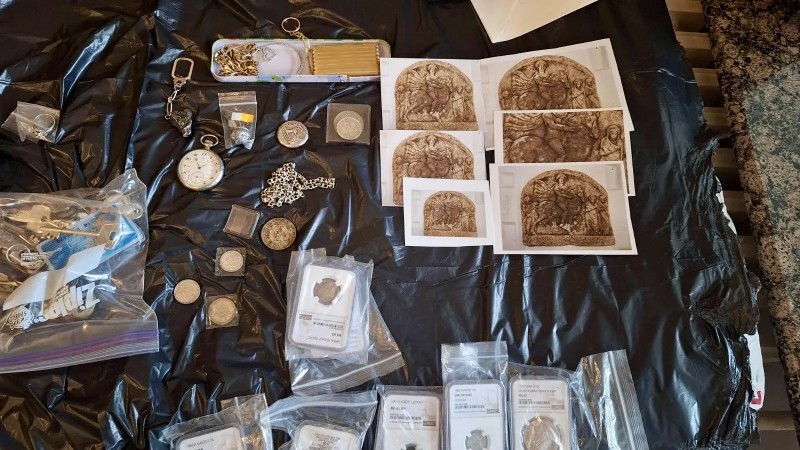A Bulgaria-led operation supported by Europol and coordinated with Eurojust arrested 35 suspects, including an alleged ringleader, and dismantled a criminal network that allegedly looted archaeological sites across the Balkans, seizing thousands of artifacts valued at 100 million euros ($115 million), authorities said Wednesday.
The Bulgarian Interior Ministry said 131 searches were carried out in Bulgaria and abroad, covering homes, offices, vehicles, and bank safes linked to the network. Investigators recovered over 3,000 additional antiquities, along with artworks, weapons, electronic devices, investment gold, and more than 50,000 euros ($57,643) in cash. Eurojust, which coordinated the cross-border effort, said the total value of the stolen cultural goods is estimated at around 870 million euros ($1 billion).
Investigators began tracking the network after a 2020 raid in Bulgaria uncovered roughly 7,000 cultural artifacts—mostly Greco-Roman and Thracian antiquities—with no reliable provenance. The cache, still held at the Bulgarian National History Museum in Sofia, includes rare masks, jewelry, military gear, rhytons, and ceremonial cups dating back as far as 2000 B.C.
A primary high-value target—the alleged ringleader—is among those arrested and is suspected of leading the trafficking operation and financing illegal excavations across Bulgaria and neighboring Balkan countries, Eurojust said. Local looters allegedly acted on his behalf, supplying artifacts that were later laundered into the international art market using forged or questionable documentation issued by auction houses and galleries in France, Germany, the United Kingdom, and the United States.
The investigation has spanned more than four years, with the network reportedly operating for over 16 years using subcontractors in multiple countries. In some nations, archaeologists and academics were arrested, and additional investigations are underway into international money laundering linked to the group, according to Sofia’s deputy city prosecutor Angel Kanev.
Europol said the Balkans’ archaeological wealth—particularly Greek, Roman, and Thracian sites—has long made the region a target for organized criminal groups. These networks often operate through local cells that loot sites and funnel items through intermediaries into markets where weak provenance checks leave cultural property vulnerable to laundering. Similar methods have also been used to traffic looted artifacts from conflict zones such as Syria and Iraq, Europol added.
Authorities from Albania, France, Germany, Greece, Italy, the United Kingdom, and Bulgaria participated in the operation, with Eurojust coordinating cross-border efforts and providing legal and analytical support. Investigators continue tracing the network’s financial flows and identifying the original archaeological sites of the looted artifacts.






